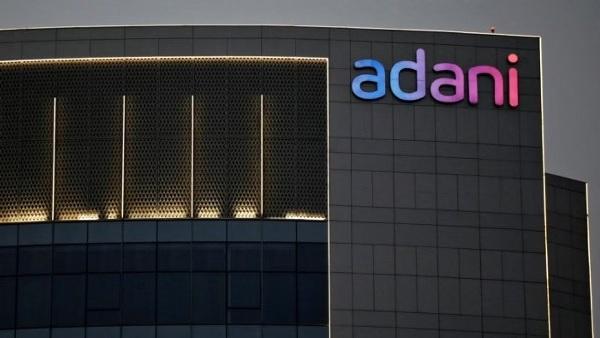In Short : Indian tycoon Adani makes significant investments in a vast solar and wind plant, showcasing a commitment to renewable energy. This move aligns with Adani’s strategy to expand its presence in the clean energy sector and contribute to India’s sustainable development goals.
In Detail : When complete in 2027, the $2.3-billion Khavda Renewable Energy Park will cover 726 square kilometres (280 square miles) — nearly the size of New York City
Khāvda (India) – Deep in the desert along the border with Pakistan, India’s most controversial billionaire is building the world’s largest renewable energy park as he races to future-proof his coal-linked fortune.
Gautam Adani’s ports-to-airports, media and energy empire – which critics say has benefited from his links with Indian Prime Minister Narendra Modi – made him for a brief time in 2022 the world’s second-richest man, with a $154 billion fortune.
A year ago his firms were hit by accusations of a “brazen stock manipulation and accounting fraud scheme” by US short-seller Hindenburg Research and their market value slumped by more than $150 billion.
But they have since recovered much of their losses and the publicity-shy 61-year-old high school dropout is betting hefty sums on making billions more from the energy transition.
India is the world’s third-biggest carbon emitter and Modi’s government has been at the forefront of attempts to push back against the “phase out” of coal at global summits.
But the world’s most populous country and fastest-growing major economy needs ever more power, and Adani is building what he calls a “monumental” solar and wind project he boasts will be “visible even from space”.
As the wind whips up sand in the baking heat of the Rann of Kutch desert, thousands of labourers erect vast rows of solar panels, dig foundations for wind turbines and lay seemingly endless rolls of wires.
In Mundra, site of India’s largest commercial port — run by another arm of the Adani empire — it is manufacturing key components for its aggressive solar and wind energy foray, including colossal wind turbine blades nearly 80 metres long
Sagar Adani, Gautam’s nephew and executive director of Adani Green Energy, told that the project’s teams are working “at an accelerated pace”.
When complete in 2027, the $2.3-billion Khavda Renewable Energy Park will cover 726 square kilometres (280 square miles) – nearly the size of New York City.
The park is aimed to have the capacity to generate 30 gigawatts of solar and wind energy – enough to power the homes of 18 million people, more than the combined populations of London and New York.
Adani will produce 17GW, with the rest generated by other companies.
The project is slated to produce a third more power than China’s Three Gorges Dam, currently the world’s biggest power-generating facility.
– ‘Proud Indian’ –
The scheme is the showpiece of Adani Green Energy – in which France’s TotalEnergies bought a 19.7 percent stake for $2.5 billion three years ago.
In Mundra, site of India’s largest commercial port – run by another arm of the Adani empire – it is manufacturing key components for its aggressive solar and wind energy foray, including colossal wind turbine blades nearly 80 metres long.
An employee inspects solar panels at an Adani Group factory in Mundra
Solar panels are churned out on high-tech production lines nearby.
“We are creating one of the globe’s most extensive and integrated renewable energy manufacturing ecosystems for solar and wind,” Adani wrote last month on X, formerly Twitter, where he describes himself as a “Proud Indian. Excited to be part of the India growth story!”
New Delhi has called for ambitious clean energy projects to create 500 gigawatts of renewable capacity to meet half its energy needs by 2030.
Adani – who rejected Hindenburg’s charges as “maliciously mischievous” – has said he will invest an estimated $100 billion into that energy transition.
When fully operational, Adani’s renewable energy park will make up the equivalent of a quarter of India’s current capacity from wind and solar.
But India also plans to sharply increase its coal-based power capacity and vows to become carbon neutral only by 2070, two decades later than many countries.
– ‘Mirrors India’s ambitions’ –
Political opponents have often accused Modi of abetting Adani’s rapid rise, allowing the billionaire to unfairly win contracts and avoid proper regulatory oversight.
Both men come from the western state of Gujarat, and Adani has often praised the premier’s policies.
Ashok Malik, from the Asia Group consultancy, said the Adani Group is “sitting on very solid assets” and “mirrors India’s ambitions and hopes and strategy”.
When fully operational, the Khavda Renewable Energy Park will make up the equivalent of a quarter of India’s current capacity from wind and solar
Malik said Adani, like all of India’s conglomerates and major multinationals in the country, were “broadly aligning” themselves with the government’s economic strategy.
“It makes perfect sense for a company which is solely invested in India’s energy sector to start looking at clean and renewable energy to shift from coal – though coal will not entirely go away,” Malik told.
At the energy park, workers in hard hats and neon jackets wrap their faces in cloth for protection from the biting sand and blazing sun.
One manager, who was not authorised to speak to the media, said the conditions were “challenging” but the scale of the construction was “awe-inspiring”.
The site is around 75 kilometres (47 miles) from the nearest village, and about six kilometres from the heavily militarised border with nuclear-armed arch-rival Pakistan.
Such grand projects often come at a heavy environmental footprint, but local conservationist Mahendra Bhanani said that while he would like a study on its impacts to be conducted, the energy park is far from human settlements and biodiversity hotspots.
“Solar energy is better than many polluting chemical industries,” he said.

